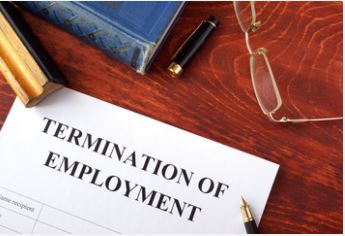
Short answer
There are two causes of legal action you may take at the Fair Work Commission if you have been dismissed within your probation period.
You may file a General Protections claim regardless of the length of your employment where you believe dismissal was due to discrimination based on your race, age, gender and other such attributes.
Further, if you have been employed for more than six months you will be eligible to file an Unfair Dismissal claim. This is true except where your employer has less than 15 employees, in which case you must have been employed for at least a year in order to claim for unfair dismissal.
This comes as a surprise to many employers who think that they cannot be sued if they dismiss during a probationary period. It is very important that employees not be wrongfully dismissed during a trial period because they may have resigned from another job to take up on the position. A whimsical dismissal is very distressing. If the dismissal demonstrates that the employee was a victim of misrepresentation, a raft of rights accrue under the Australian Consumer Law.
An application to the Fair Work Commission must be completed within 21 days from the day of termination.
Long answer
Determining the probation period
A probationary period of employment is only effective if it is contained within the terms of the written employment contract agreed to by you and your employer. A probationary period that is longer than six months (or 12 months for an employer with less than 15 employees) will not prevent you from submitting an Unfair Dismissal claim if you have already completed the minimum employment period of six months (or 12 months for an employer with less than 15 employees). If you are an existing employee who has moved to a probation period for a new role with the same employer, your time in your previous role is considered as part of your employment period. Dismissal on a probationary period, however, must be distinguished from the conclusion of a training arrangement with your employer or the end of a fixed-term contract which is not protected by Unfair Dismissal legislation. If you are employed under and Award or an enterprise bargaining agreement, your employer may have scope to extend your probation period if your employment contract stipulates the ability to do so. It is important to note, however, that the minimum employment period remains mandatory regardless of any changes to the probation period.
Is my dismissal ‘unfair’?
Your dismissal may be characterised as unfair if it was harsh, unjust or unreasonable and the dismissal was not a case of genuine redundancy under the Fair Work Act 2009(Cth). For small business employers with less than 15 employees, the dismissal must also be consistent with the Small Business Fair Dismissal Code.
In order to be eligible to submit an Unfair Dismissal Application, you must also:
Notice of dismissal must be delivered to you in accordance with the notice period set out in the above table in one of the following ways:
Alternatively, your employer may pay you in lieu of providing the required notice. This must be at least the amount your employer would have been liable to pay you for the hours you would have worked had the employment continued until the end of the minimum period of notice in the above table.
Your employer can terminate your employment without notice or payment in lieu in some situations involving serious misconduct such as theft, fraud or conduct which threatens the health and safety of others. You are, however, entitled to have any accrued leave or outstanding wages paid out.